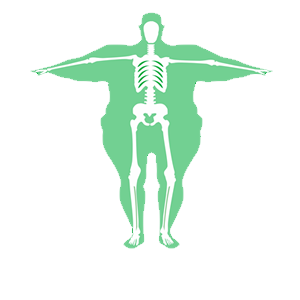This Ketogenic way of life
This site is the ketogenic way of life. It is not a ‘Medical’ Keto Site
The methods followed by this site are not those of a standard Medical Ketogenic Diet and we are NOT Low Carb High Fat (LCHF).
This Ketogenic Way of Life uses a well formulated and slightly different version of the standard HFLC Ketogenic diet.
layman’s terms
![]() Our bodies require a certain amount of fat energy to run each day. If that fat level intake is not achieved your body will take the fat from its own storage hence reducing your body fat.
Our bodies require a certain amount of fat energy to run each day. If that fat level intake is not achieved your body will take the fat from its own storage hence reducing your body fat.
![]() If you do not limit the number of carbohydrates that you consume, your body will use the carbohydrate energy before it uses the fat energy. This fat is then stored for later use but if it does not get used it just builds up.
If you do not limit the number of carbohydrates that you consume, your body will use the carbohydrate energy before it uses the fat energy. This fat is then stored for later use but if it does not get used it just builds up.
![]() In order to retain our body muscle, we increase the amount of protein we take in. The body muscle storage then replaces the fat storage making you stronger and leaner.
In order to retain our body muscle, we increase the amount of protein we take in. The body muscle storage then replaces the fat storage making you stronger and leaner.

MODERATE PROTEIN, MODERATE FAT AND LOW CARB.
IT’S THE WAY WE ROLL, KICK START YOUR NEW LIFE TODAY

This Ketogenic way of life
LOSE WEIGHT FEEL HEALTHY
This website was created to help people that are looking to lose fat and improve their health, through the balanced nutritional whole food-based way of life.
![]() We use a well-formulated version of the ketogenic diet designed to keep your body in a state of ‘Ketosis’ hence the term ‘In Ketosis’.
We use a well-formulated version of the ketogenic diet designed to keep your body in a state of ‘Ketosis’ hence the term ‘In Ketosis’.
Ketosis is a normal metabolic process. When the body does not have enough glucose for energy, it burns stored fats instead. It is certainly more conducive to fat loss and muscle retention but it is hard work and you will need to stay focused.
![]() We have a proven guideline for eating a well-formulated Ketogenic diet that thousands of people have found effective in reaching their health goals. By assessing your macros and keeping track of your intakes you will lose the fat that you long to be rid of.
We have a proven guideline for eating a well-formulated Ketogenic diet that thousands of people have found effective in reaching their health goals. By assessing your macros and keeping track of your intakes you will lose the fat that you long to be rid of.
There is a very good reason for the way we do things, and you can find out all you need to know if you continue reading below.
INSPIRE OTHERS WITH FRESH IDEAS
Our site consists of a community of people in various stages of living this lifestyle who want to share their personal recipes and experiences.
![]() This Ketogenic Plan is not a Diet. It is in fact a way of life where we only advocate for whole foods being used and do not condone processed or junk foods as a means to meet macro requirements.
This Ketogenic Plan is not a Diet. It is in fact a way of life where we only advocate for whole foods being used and do not condone processed or junk foods as a means to meet macro requirements.
We are here to support each other in reaching our personal goals and by keeping A positive mental attitude.
A word from the owner
Hi everyone, welcome to my site. I decided to build this site so I would have a source for different recipes, so please add your favourites. Thank You. InK
Please note that your post will not be approved if the recipe does not meet the guidelines set forth on this site or if your story talks about cheats or other plans that we do not follow.
ABOUT PROTEIN
This is the most important macro.
![]() Protein is always paramount (adequate meals and daily amounts) and should be a primary directive!
Protein is always paramount (adequate meals and daily amounts) and should be a primary directive!
![]() Not only is this total amount of protein a day very important but also the pattern of intake can have dramatic results as well!
Not only is this total amount of protein a day very important but also the pattern of intake can have dramatic results as well!
![]() For increased fat burn, pattern your meals with at least ⅓ of your daily protein in each meal spaced 4+ hours apart with no snacking.
For increased fat burn, pattern your meals with at least ⅓ of your daily protein in each meal spaced 4+ hours apart with no snacking.
![]() This pattern of intake maximizes muscle protein synthesis (MPS). MPS is very energy demanding and is equivalent to about 1/2 hour of exercise.
This pattern of intake maximizes muscle protein synthesis (MPS). MPS is very energy demanding and is equivalent to about 1/2 hour of exercise.
![]() We advocate for the use of whole foods as a method to reach protein goals, as opposed to protein shakes.
We advocate for the use of whole foods as a method to reach protein goals, as opposed to protein shakes.
![]() For those who have had weight loss surgery (WLS), a protein shake may be the only possible way to achieve an ideal protein intake.
For those who have had weight loss surgery (WLS), a protein shake may be the only possible way to achieve an ideal protein intake.
![]() For everyone else, unless there is a good reason to select this option, this site will advise using whole foods before supplementation.
For everyone else, unless there is a good reason to select this option, this site will advise using whole foods before supplementation.
ABOUT CARBS
The primary macro focused on in a Ketogenic Diet is carbohydrates.
![]() In order to attain a state of nutritional ketosis, where our body uses fat instead of glucose for energy, carbohydrate intake must be below a certain threshold.
In order to attain a state of nutritional ketosis, where our body uses fat instead of glucose for energy, carbohydrate intake must be below a certain threshold.
![]() This threshold is different for everybody, but here, guidelines have been provided that should help most.
This threshold is different for everybody, but here, guidelines have been provided that should help most.
The guidelines set out in this site suggest that you keep carbs low. Approximately 20-25 g a day to put and keep your body in ketosis.
[You will get your number from the macros chart later on this page.]
However, we do not encourage you to attempt a “zero-carb” approach for a number of reasons:
- It is very difficult to accomplish as good protein sources that are prolific like eggs/cheese/cream/organ meats/shellfish do contain carbs.
- Muscle building can be difficult to achieve without some carbs.
- The subject is not well explored but seems to have increasing anecdotal evidence that can cause fuel flow issues when ketosis is too high.
(starvation ketosis per Phinney and Volek, >3.0 mmol/l blood beta-hydroxybutyrate).
Please note:
We will always encourage LOW CARB vegetable options and discourage the use of high carb vegetable options.
These include wheat, grains, and unnecessary processed foods.
Some may choose to do certain types of carbs at targeted times to support work-outs or intended, specific vigorous activity.
(CKD – Cyclical Keto Diet, TKD – Targeted Keto Diet).
This Ketogenic way of life; ABOUT FAT
Fat can come from either the plate or the body.
![]() Total fat burned is a combination of body fat and dietary fat. The amount from each is going to depend on if you are in weight loss or maintenance. Our guidelines assume a desire to reduce body fat and are set accordingly.
Total fat burned is a combination of body fat and dietary fat. The amount from each is going to depend on if you are in weight loss or maintenance. Our guidelines assume a desire to reduce body fat and are set accordingly.
![]() Once you reach your fat loss goals, we have instructions for Maintenance (found in Resources).
Once you reach your fat loss goals, we have instructions for Maintenance (found in Resources).
WEIGHT LOSS GOALS:
- You want to keep fats lower than protein in grams, but high enough to address brain, hormonal and vitamin needs.
So, please stay at or slightly (10 gm) below your recommended fat by our charts to be safe. - Absolute minimum fat intake (but NOT to be done on a regular or chronic basis) is 30 gm of fat to avoid gall stones.
Please keep in mind this low intake will not properly feed your brain and other needs.
MAINTENANCE GOALS:
- You raise the number of fats you are eating until you stop losing weight. keep carbs low and protein the same.
- Those in maintenance or targeting specific energy/caloric requirements may do more/less depending upon said goals.
- There will be links in the resource section explaining maintenance further.
There ARE good fats and bad fats.
![]() We encourage good fats in the form of avocado, butter, olive oil, macadamia oil.
We encourage good fats in the form of avocado, butter, olive oil, macadamia oil.
MCT oil (which also includes coconut oil) MAY be beneficial to those in maintenance or requiring energy. But, only for specific and targeted physical activity (running would be a good example). They are NOT to drink coffee or tea.
